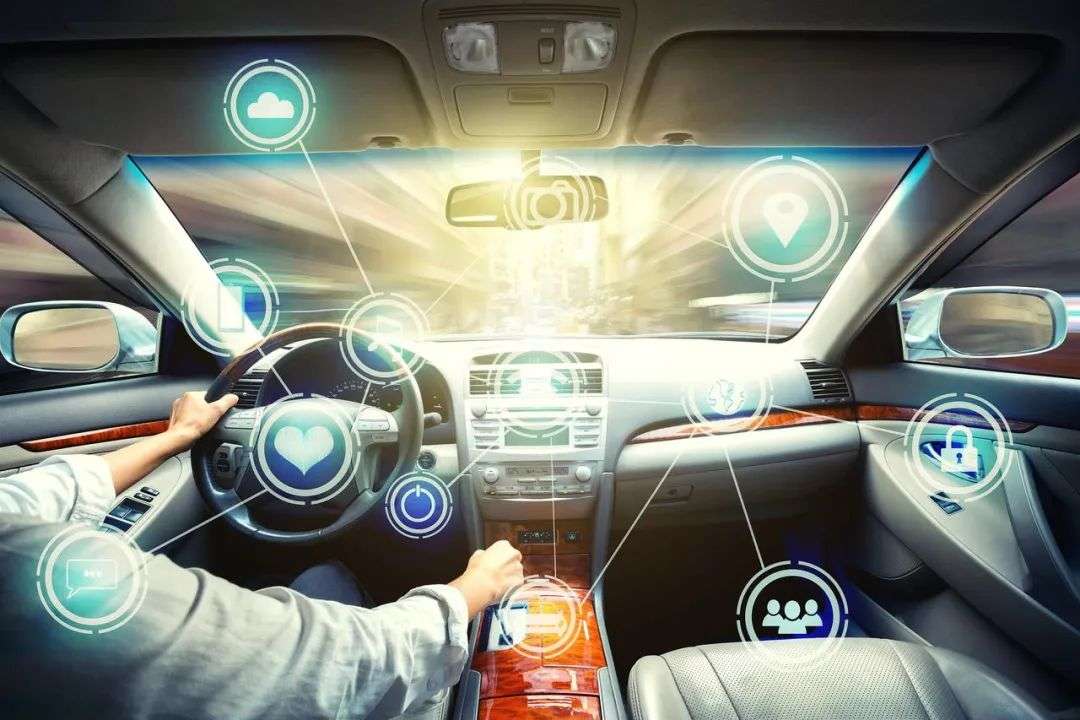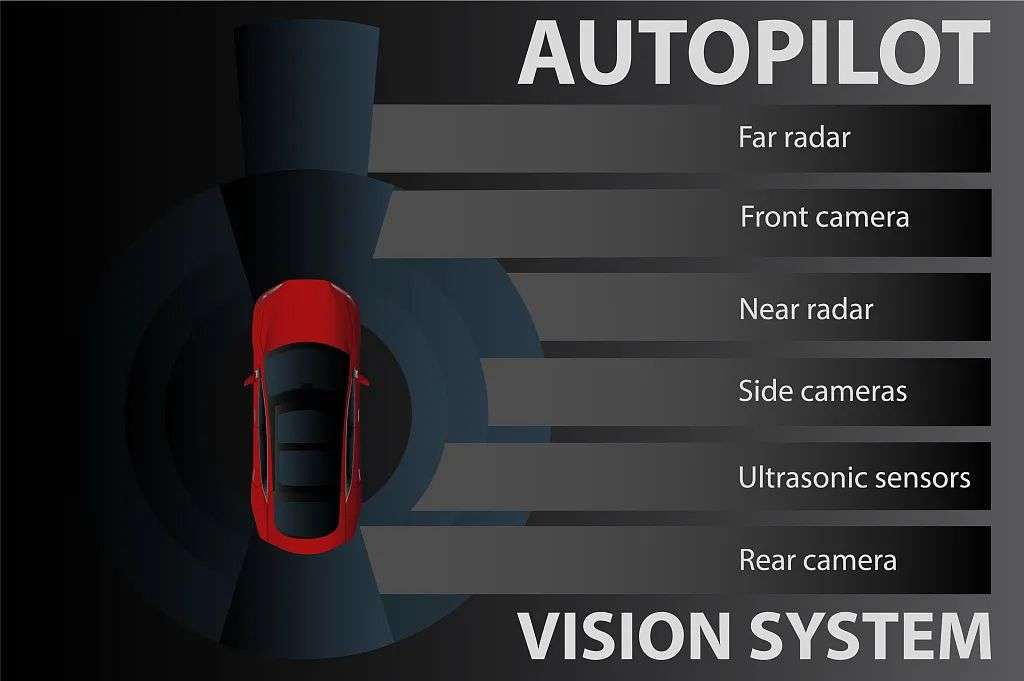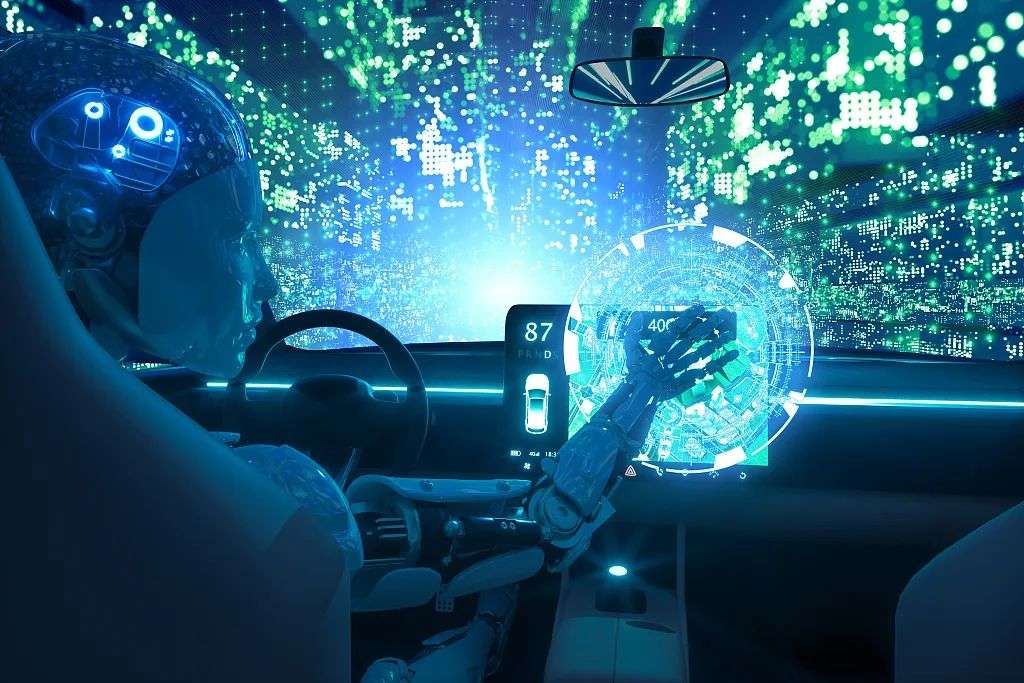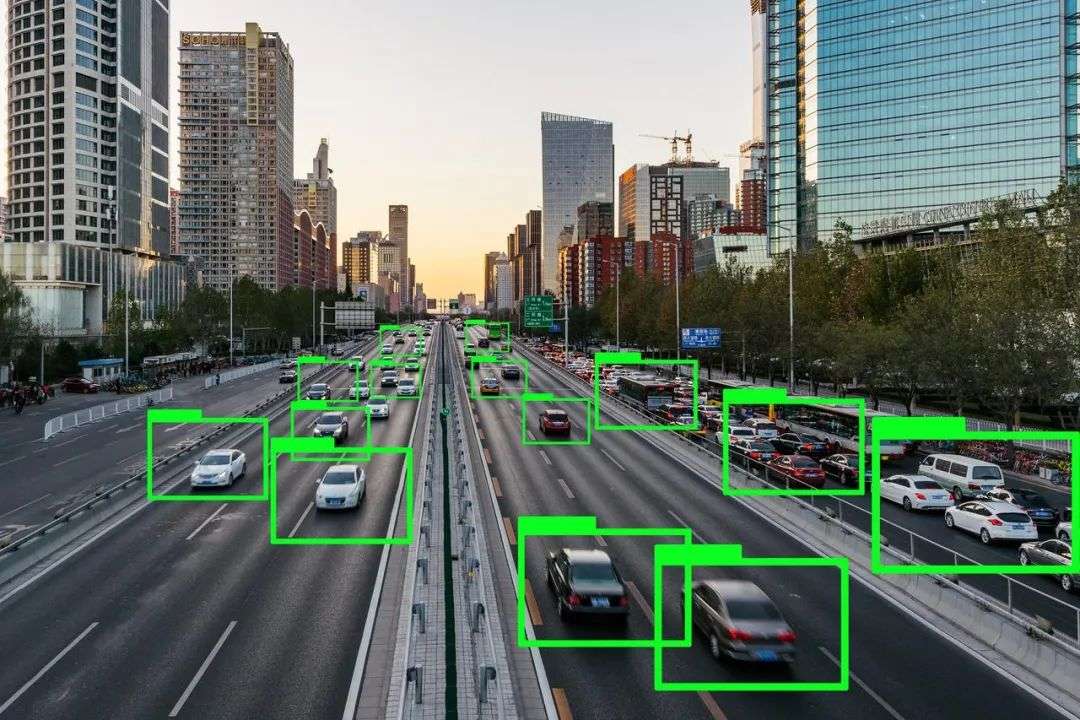Recently, the car blogger “Li Mouse Talks About Cars” broke the news that the smart car brand, the driving recorder of Gaohe Automobile, has a button similar to “WIFI” in the lower right corner. After clicking it, you can see the users of other Gaohe car owners. list. After selecting one of the user names that displayed Zhengzhou, the real-time picture of the Zhengzhou owner’s driving recorder appeared on the central control screen. This raised doubts about personal data leakage, and the news quickly rushed to the hot search.
Smart cars involve various questions related to personal data security. In the past few years, there have been many discussions on smart car brands such as Tesla, NIO, Xiaopeng, and WM Motor. Behind these social concerns is the anxiety about the security of personal data in the era of smart cars.
However, in the eyes of new energy vehicle manufacturers, personal data security is not the main selling point. Generally speaking, when new energy vehicle companies publicize, more emphasis is placed on cruising range, autonomous driving, appearance design, chip computing power, charging and swapping services, etc., functions and services related to personal data security, and even very Rarely appear in promotional materials.
For the smart car industry, personal data is a “less transparent” issue, and there is no uniform industry-wide standard. Many people in the industry even believe that this is an issue that “doesn’t need to be discussed now”.
01 An “important but not urgent” question?
To answer this question, we can briefly review the development history of China’s new energy vehicles. Since 2009, China has begun to vigorously promote the development of new energy vehicles. The early stage mainly focused on electrification. It was not until Tesla entered China and the rise of new car-making forces such as Weilai and Xiaopeng that intelligence received attention.
Up to now, the development history of Chinese new energy manufacturers has only lasted for more than ten years, and the new car-making forces such as Wei Xiaoli have been less than 8 years old, and most of them are still in the early stage of verification from 0 to 1. In this process, the most important thing for an enterprise is to survive first, give full play to its own strengths, create user value that was overlooked by the former leaders, and achieve a rapid increase in sales.
In the case of limited resources, OEMs will give priority to differentiated functions and services that users can clearly perceive, such as Tesla’s early three-electric system capabilities, NIO’s user service capabilities, and Xiaopeng’s intelligent driving capabilities. , as well as the product capabilities of Ideal Car for the family user group.
In contrast, personal data security is not an explicit requirement of users, but only as an underlying service and function, which is designed by the OEM by default. If battery life, autonomous driving, in-vehicle interaction, price, and service are all players who cooperate with each other on the court to “goal and score”, the functions and systems related to personal data security are at most a sparring role in the team.
Relying on this strategy, Wei Xiaoli has basically completed the stage from 0 to 1 in 2021, with sales exceeding 90,000 units. Among them, Li Auto took a 3% share of 250,000 to 500,000 passenger cars, proving its product power for home users.

Smart cars collect some data|Vision China
When will data security become one of the competitiveness of smart cars? If you refer to the experience of the smartphone industry, personal data security is the global data security revolution started by Apple after 10 years of industry development. Since April last year, Apple has officially implemented the ATT policy to address personal data security issues. ATT gives the user control of the device’s unique serial number, also known as the Identifier for Advertisers (IDFA), and it is up to the user to decide whether to share the data and with whom.
This not only further shaped Apple’s corporate image of attaching importance to personal data, but also became one of its brand characteristics and competitiveness. Subsequently, Google also responded to this trend and initially realized the “privacy security compliance wall” established by large cloud service manufacturers.
Like smartphones, smart cars seem to take 10 years of development before society pays attention to the basic issue of personal data security. But at present, although the user’s perception of personal data security is not obvious, and the sales volume cannot be greatly increased, in terms of the granularity of collecting user data, smart cars are much higher than mobile phones, so it is necessary to pay attention to this issue from the beginning. .
Li Jun, founder and CEO of Canuan Technology, who is engaged in smart car data security technology, told Geek Park (ID: geekpark) that smart cars equipped with rich sensors have become powerful remote data collection terminals. When a car is as smart as a cell phone, the data-gathering power of a car will greatly exceed that of a cell phone.
The reality is also true. Taking the Tesla Model 3 as an example, there are a total of 21 sensors in the whole car. Among them, including 8 high-definition cameras, 12 ultrasonic sensors, 1 forward millimeter wave radar system. The high-definition camera can provide a 360-degree all-round field of view within a range of 250 meters; ultrasonic sensors can sense and monitor obstacles within 8 meters around the car; millimeter-wave radar, the maximum detection distance is 160 meters, which can penetrate heavy rain, dust, even the vehicle in front.

Autonomous Vehicle Vision System | Vision China
As the “arms race” of car companies becomes more and more inward, the number of sensors is increasing. The new car ET7, which Weilai has just started to deliver, has as many as 33 sensors, including 11 cameras with nearly 10 million pixels, 12 ultrasonic radars, 5 millimeter-wave radars, and 1 lidar. In the future, with the development of smart cars, the quantity and quality of sensors may increase significantly.
Through these sensors, OEMs and Internet of Vehicles service platform providers have collected massive amounts of data. It is understood that the data generated by an intelligent networked car per second is about 8G, and at least about 10TB of data can be collected every day. This data is of enormous value to automakers, mobile operators, insurance companies and other service providers.
In addition to the large amount, the information collected by smart cars also has many kinds of characteristics. An expert once said in an interview that Tesla can collect more than 200 pieces of information covering the owner’s personal information, vehicle environment information, vehicle driving information, and owner mobile phone information, and there are more than 170 items collected by similar domestic manufacturers.
Generally speaking, the types of data collected by intelligent networked vehicles include dozens of types of vehicle driving data, body data, manipulation data, video data, image data, and coordinate data.
Among them, a large part of users are most concerned about personal data, including the names, ID cards, and phone numbers of car owners and passengers, as well as their consumption and living habits information, user body temperature, heart rate, etc., and even car owners and passengers. Image and voice data, location information, driving trajectories, etc. In addition to serving users, the information transferred by these users is also used for back-end analysis by car companies for product improvement and experience optimization.
02 How to protect personal data security?
At present, smart cars are still in the early stage of development, and there are indeed many problems in personal data security. Chen Hong, the head and chairman of SAIC Motor, has publicly stated that in the process of data acquisition and use, there are unclear responsibilities and regulatory requirements for data collection and storage, unclear requirements for commercial use of data, and insufficient prevention of data leakage. Insufficient penalties for data violations.
However, countries around the world seem to be aware of these problems and have begun to strengthen the top-level design of ICV safety. In particular, 2021 is regarded as the first year of data security for intelligent networked vehicles. Whether at the UN level or at the national level, many laws and regulations related to personal data protection have been formulated.
For example, in the field of Internet of Vehicles in China, relevant departments have successively issued “Several Regulations on Automobile Data Security Management (Trial)”, “Opinions on Strengthening the Access Management of Intelligent Connected Car Manufacturers and Products”, “Information Security Technology Connected Car Collection” Data Security Requirements”, etc., to strengthen the management of data security, network security, functional security and expected functions.
“From the perspective of actual development, the current legal standard system has a certain gap compared with the United States and Europe and other regions, and it cannot fully meet the needs of industrial development.” The evaluation system and the establishment of a monitoring mechanism have been strengthened.

Smart Car Concept Map|Visual China
At the same time, on the specific operational details, the industry has not yet reached a consensus in many aspects. For example, as a large amount of data is collected, who does the ownership of personal data belong to? This is a complicated question. At present, from the perspective of control, the data collection, analysis, and use of smart cars are all in the hands of the OEM; but from the perspective of ownership of personal data, the mainstream view in the industry believes that it should belong to the user.
In reality, it is also difficult to define the ownership of driving data. Chen Wen, director of the Digital Economy Research Center of the School of Finance, Southwestern University of Finance and Economics, said that there is a storage cost for personal data information. Enterprises or operators often store valuable data out of commercial value considerations, and these data constitute the company’s “core assets” In addition, personal data has the attributes of a social network, especially in the Internet age, where personal data and other people’s data are often mixed together, if the data is completely assigned to a certain person, There may be suspicion of violating the privacy rights of others’ data.
To give a simple example, during the Shanghai Auto Show in April last year, some rights-defense car owners accused Tesla of brake failure and said that the driving data claimed by Tesla was untrue. Subsequently, Tesla released the data one minute before the accident at the end of April of that year. However, the owner’s family later claimed that Tesla’s move violated the owner’s privacy.
At the heart of this controversy is EDR data (Automotive Event Data). The system records the operation and safety status information of the vehicle for a period of time before and after the collision accident, including vehicle speed, steering angle of the steering wheel, acceleration and brake pedal status, seat belt usage, vehicle braking system, etc., which is the basis for the analysis and identification of the cause of the accident . Under the current legal framework, it is difficult to define attribution for this type of data, which has sparked industry discussions.

Autonomous Driving Data Map|Visual China
Regarding how to ensure the security of users’ personal data, Shen Hui, founder of WM Motor, said that the decisive factor lies in the needs of users, and it is the OEMs who are under pressure. For users, all options are boxed to “reject”, and they may not even be able to enter the car system. The information is safe, but it also gives up the intelligent attributes of the car, which is not worth it; selecting all “Agree” and completely handing over your information security to the OEM, you lose the initiative to protect your privacy, which is inappropriate. Therefore, what users need is a privacy and data protection “electronic fence” that can be selected multiple times and can be personalized.
This seems to represent the relatively unified thinking of today’s car companies, but it also brings up another problem. From a formal point of view, smart car companies can give users the right to choose, but when car intelligence has just started, personal When data security is not on the table, and car companies generally avoid talking about it, users may not know at all, under the complex technical mechanism, what do those options mean?
Take the Android system of smartphones in those days as an example. It has a powerful developer mode inside. For example, after “USB debugging” is turned on, ADB can realize various operations, such as sending broadcasts, deactivating applications, pulling files, and opening activities. and many more.
However, for ordinary users, most of them have never contacted or even heard of it. It is very unrealistic to educate users to rationally use these “rights of choice”. Leaving many hidden dangers may not ultimately promote the safe use of personal data.
The era of smart cars is inevitable. According to the National Development and Reform Commission, by 2025, the penetration rate of smart cars in China will reach 82%, and the number will reach 28 million; in 2030, the penetration rate will reach 95%, and the number will be about 38 million.
In the short term, personal data security has little impact on increasing market share, and occasional disputes are quickly forgotten. However, in the long run, it is indeed indispensable for the long-term development of the industry, establishing a more consensus bottom-line standard, allowing users to fully understand the most dynamic intelligent terminal in the new era of automobiles with the most transparent understanding, rather than always It is a periodical question and distrust of intelligence.
History rhymes, but it doesn’t have to repeat itself. The “pit” of personal data security buried by smart phones for ten years, smart cars should not do it again.
This article is reproduced from: https://www.geekpark.net/news/302570
This site is for inclusion only, and the copyright belongs to the original author.